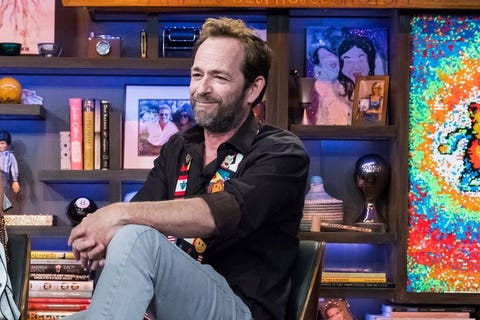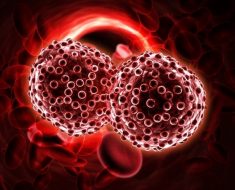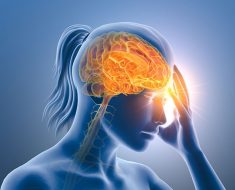Actor Luke Perry, known for his roles on Riverdale and Beverly Hills: 90210, was hospitalized on Wednesday following a stroke. While there have been limited updates on Perry’s condition, Thursday news reports described what happened to Perry as a “massive” stroke.
When we hear about strokes in the news, the word “massive” is sometimes used to describe them. Tim Curry had a massive stroke in 2013; Dick Clark had one in 2004; Zsa-Zsa Gabor, in 2005. But what does a “massive” stroke really entail, and how does it differ from a regular stroke?
What is a massive stroke?
A stroke occurs when the blood supply to your brain is cut off. Brain cells that don’t receive oxygen die, which impacts your ability to function normally. A “massive” stroke simply means that a large portion of your brain was denied blood, according to Healthline.
In severe cases, patients can have long-term disabilities if they suffer from too much brain damage, according to the Centers for Disease Control and Prevention. An estimated 20 percent of people die from strokes because their brains were unable to control vital functions, like breathing.

BravoGetty Images
On the other end of the spectrum are smaller strokes that don’t affect as much of the brain. Some are so small, people don’t realize they’re having them. People may experience numbness or muscle weakness, and symptoms could only last a few minutes.
In 2010, singer Bret Michaels was hospitalized for having a ministroke while recovering from a brain hemorrhage, Rolling Stone reported. Michaels was diagnosed with a transient ischemic attack, which are thought to be a warning of future stroke risk. About 33 percent of patients with a ministroke go on to have a regular stroke, Mayo Clinic reports.
What are the types of strokes?
According to the American Stroke Association, there are several types of strokes: Ischemic, Hemorrhagic, Transient Ischemic Attacks, Cryptogenic, and Brain Stem.
Ischemic is the most common form of strokes, accounting for about 87 percent of all stroke cases. Typically, these occur due to high blood pressure.
What are the treatments for massive strokes?
As Men’s Health previously reported, early stroke treatment includes surgery or medication to remove the blood clot. After the clot is removed, patients may need rehab, depending on the severity of their brain damage. And people who have suffered a stroke are at risk for future strokes, so doctors may prescribe medications that help prevent blood clots.
Source: Read Full Article





